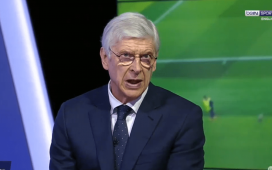MELBOURNE (Reuters) – Australia’s peak anti-doping authority has defended its use of “confidentiality agreements” to suppress details of doping cases amid a storm of criticism over the handling of swimmer Shayna Jack’s failed drug test.
Jack was pulled out of the Australia squad ahead of the world championships in Gwangju, with both the swimmer and Swimming Australia (SA) initially citing “personal reasons” for her withdrawal.
But the 20-year-old freestyle swimmer revealed on Saturday she had tested positive for a banned substance in an out-of-competition test on June 26.
Accusations of hypocrisy were immediately leveled at Australia, with the non-disclosure of the positive test set against Mack Horton’s condemnation of Chinese swimmer Sun Yang, who served a drug ban in 2014 and is embroiled in another doping controversy.
SA said it was unable to reveal any details while the Australian Sports Anti-Doping Authority (ASADA) were investigating, amid widespread criticism that the federation had thrown Horton “under the bus.”
ASADA on Monday also defended what it called “confidentiality agreements” with sports federations over doping cases, saying they could help them “target facilitators who may be preying on Australian sport and our athletes.”
“Since 2006, ASADA has been entering into legally binding confidentiality undertakings with sporting organizations in accordance with provisions contained in the National Anti-Doping scheme,” ASADA said in a statement.
“These undertakings restrict what sporting organizations can say.
“This is, and always has been, ASADA’s standard practice. One of the reasons as to why ASADA has these agreements is to protect the integrity of our investigations.”
ASADA said it decided on whether to disclose information on failed drug tests on a “case by case basis”.
“Despite our powers, ASADA can never restrict an athlete’s right to discuss or talk about their case in public,” the statement added.
Jack, who denies wittingly taking a banned substance, said her second ‘B’ sample had confirmed the presence in her sample of Ligandrol, an anabolic agent. She faces a four-year ban.
ASADA’s statement did little to ease criticism of SA and its handling of the Jack case, with local media pundits demanding heads roll at the federation on Monday.
“Following this scandal that (confidentiality) policy surely now must be binned,” Sydney newspaper, the Daily Telegraph, said on Monday.
“The public has the right to know that our swimmers are clean… or dirty.”
Reporting by Ian Ransom; Editing by Amlan Chakraborty














